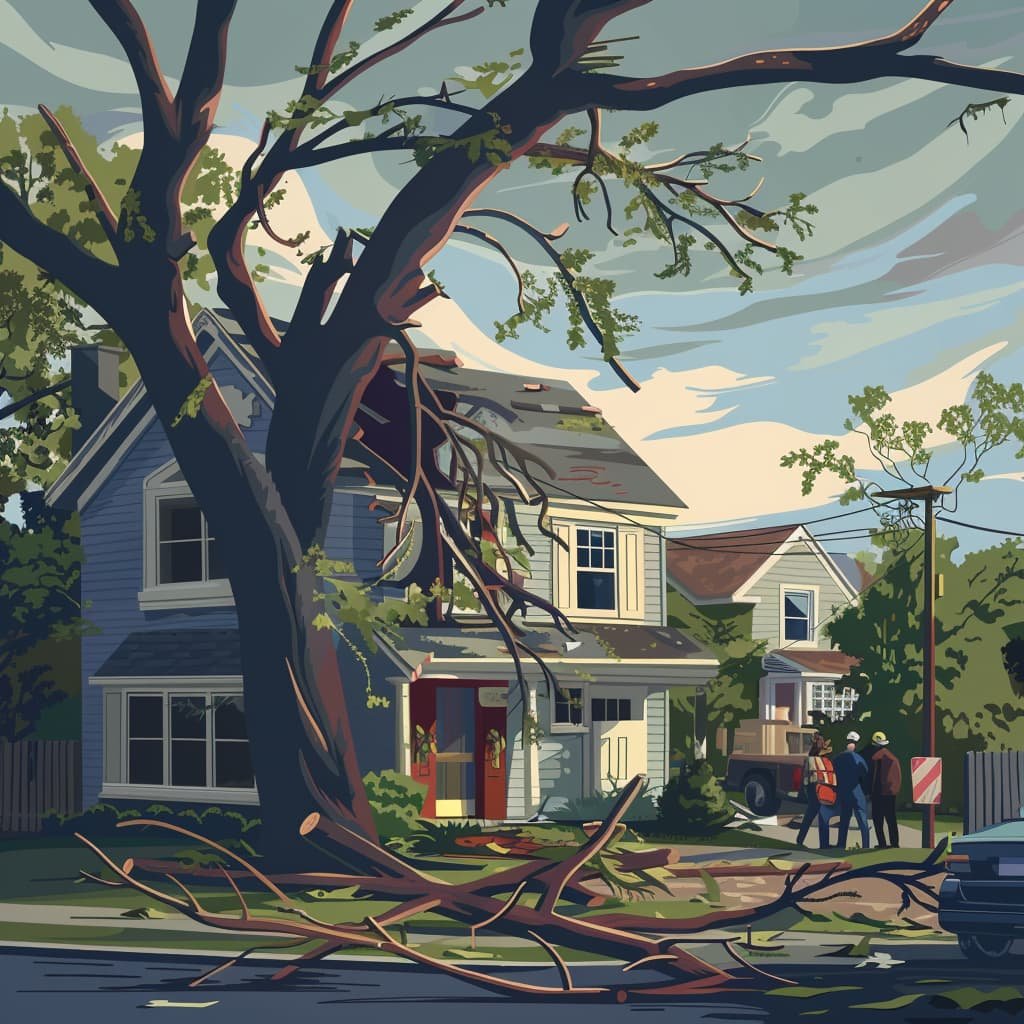Don’t Panic. Follow This Plan.
In Central Illinois, severe thunderstorms and winter ice can bring down even the sturdiest Oaks and Maples. When a tree falls on your roof, the sound is terrifying—a massive crash followed by the groan of buckling wood.
Your first instinct is to panic. Your second is to call everyone you know. Stop. Take a breath. Here is the exact Emergency Action Plan to keep your family safe and ensure your insurance claim is approved.

Step 1: Evacuate & Assess (From the Ground)
Do not go into the attic. If a tree has impacted your roof, you don’t know if the trusses (the structural bones) are cracked.
-
The Action: Get everyone outside. Walk to the street and look at the roof line. Is it sagging? Are power lines down?
-
Call 911 IF: You smell gas, see sparking wires, or if the tree has punctured the living space.
Step 2: Who Do I Call First? (The Tree Guy vs. The Roofer)
This is the most common confusion.
-
Call SNS Roofing (Your Roofer): We need to be on standby. Once the tree is gone, you have a gaping hole in your house that needs immediate tarping.
-
Call a Tree Removal Service: They have the cranes to lift the timber off the structure.
-
Crucial Note: Ask the tree company to itemize their invoice. Insurance often separates “debris removal” from “removing tree from structure.” If the bill isn’t split correctly, insurance might underpay you.
Step 3: Call Your Insurance (Or Let Us Do It)
Filing a claim for a tree on a roof can be tricky.
-
The Trap: Insurance adjusters often try to pay only for the shingles they see are broken. They might miss the cracked rafters or the shifted wall plates caused by the impact.
-
The Solution: As licensed Public Adjusters, SNS Roofing can handle the claim for you. We meet the insurance adjuster on your roof and point out every structural fracture to ensure you get the full payout you deserve.
Step 4: Emergency Mitigation (The Tarp)
Your insurance policy has a clause called “Duty to Mitigate.” This means if you leave the hole open and it rains again, the new water damage is your fault, not theirs.
-
The Fix: SNS Roofing provides 24/7 Emergency Tarping. We seal the breach immediately after the tree is removed to protect your interior.
Q&A: Common Tree Damage Questions
Q: If my neighbor’s tree falls on my roof, who pays? A: Usually, your insurance pays. It is considered an “Act of God.” You only go after the neighbor’s insurance if you can prove the tree was dead and they were negligent in not cutting it down (which is hard to prove).
Q: Will insurance buy me a whole new roof? A: Maybe. If the tree smashed a significant portion of the slope, and we can prove that patching it would look unmatched or compromise integrity, we fight for a full replacement.
Prepare for the Storm
If you are reading this while staring at a branch in your living room, Call SNS Roofing immediately at (309) 338-5889.
For everyone else: Check the health of your trees. According to the Arbor Day Foundation, regular pruning can prevent wind resistance that topples trees during storms.
Stay safe, Peoria.

0 Comments